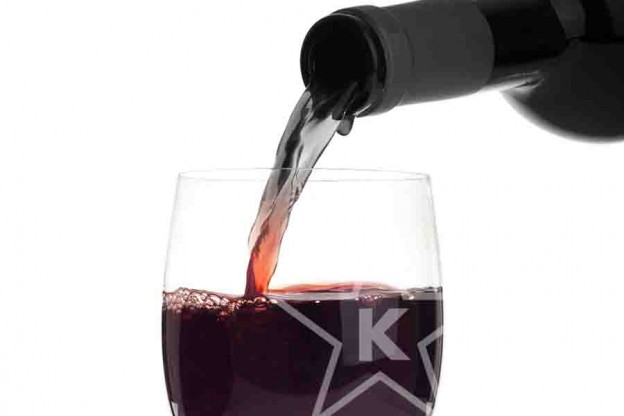
Kashrus Kurrents Spring 2016
Q: When is the brocha of Hatov v’Hameitiv recited over wine?
A: Before drinking a cup of wine, one recites the brocha of Borei Pri Hagofen. Under certain circumstances, if a different wine is subsequently drunk one recites an additional blessing – the brocha of Hatov Vehameitiv.1 The brocha gives thanks to Hashem for blessing the person with a richness of wine. The Hebrew text of the brocha is 2ברוך אתה ה’ אלקינו מלך העולם הטוב והמטיב
This brocha is recited only if a number of conditions are met:
- If the second wine is of lesser quality than the first wine, Hatov Vehameitiv is not recited.3 There is one exception to this rule. If the first wine is red and the second one is white (but not the other way around), Hatov Vehameitiv is recited even if the second wine is known to be of slightly inferior quality. This is because Chazal consider white wine to be somewhat healthier than red wine.4
- If a person plans to drink two wines of different quality during a meal, and both wines are available in his house, he should ideally recite Borei Pri Hagofen over the wine of superior quality and drink that wine first.5 Older vintage wine is assumed to be of superior quality, unless one knows that this is not the case.6
- If a person intends to drink both wines which were available in the house before he started drinking, and he recited Borei Pri Hagofen and drank the inferior wine first, Hatov Vehameitiv is not recited over the superior wine.7
- However, if a person was intending to drink only one wine and subsequently decided to drink a second wine, or if he was intending to drink two wines but the second wine was not in the house at the time that he started drinking the first wine, he would recite Hatov Vehameitiv over the second wine if all the other conditions were met.8
- If the second wine was drunk only after the first bottle of wine was finished, Hatov Vehameitiv is not recited. That is to say, Hatov Vehameitiv is recited over the second wine only when the first wine is still available.9
- A person must drink from both wines at the same meal.10 If one wine is drunk during the meal and the second wine is drunk after Birchas Hamozon (i.e., when benching over a cup of wine), one recites Borei Pri Hagofen over the second cup and Hatov Vehameitiv is not recited.11
- Two or more people must drink together from both of the wines. If a person is eating with a guest (who does not share in the ownership of the wine), both of the wines must have been placed on the table and made available to the guest should he want more. If a husband and wife or parent and child are eating together it is not necessary for both of the wines to have been placed on the table and made available.12 Hatov Vehametiv is recited only when both people are eating together in the same room.13
- The poskim debate the amount of wine that needs to be drunk when reciting Hatov Vehameitiv. Some say that one must drink a reviis (approx. 4 fl. oz.) of wine from each of the two wines.14 However, a number of poskim say that one may recite the brocha when drinking any amount of wine.15
- Rav Elyashiv, zt”l, has been quoted as saying that Hatov Vehameitiv is recited only if both wines are intoxicating. Therefore, if a person drinks grape juice and subsequently drinks wine, Hatov Vehameitiv is not recited.16
As the laws pertaining to the recitation of Hatov Vehameitiv are complex, some have the custom never to recite this brocha over wine.17 However, Rav Heinemann, shlit”a, paskens that if all of the above conditions are met Hatov Vehameitiv should be recited.18
-
- שו”ע או”ח סי’ קעה, וכל הציונים להלן לדברי השו”ע ומפרשיו הם לסימן זו
-
- מ”ב ס”ק ב
-
- שו”ע סעי’ ב
-
- רמ”א שם ומ”ב שם ס”ק יב
-
- שו”ע סעי’ ג
-
- מ”ב ס”ק י
-
- מ”ב ס”ק ד בשם הלחם חמודות, וכבר הקשו האחרונים שזה נראה כסותר מש”כ המ”ב שם ס”ק ה וס”ק יד, ועי’ במ”ב מהדורת ‘דרשו’ אות 9 בשם הגרח”פ שיינברג זצ”ל ובספר וזאת הברכה בירור הלכה סי’ לח בשם הגרי”מ רובין מש”כ לתרץ, וממו”ר ר’ היינעמאן שליט”א שמעתי שכיון שדברי המ”ב אינם מבוררים לנו כל צרכם מוטב שלא לברך בכה”ג שספק ברכות להקל
-
- מ”ב שם
-
- מ”ב ס”ק ג
-
- מ”ב ס”ק ב, וה”ה אם היו מסובין לשתות בלא אכילה כמש”כ המ”ב שם
-
- מ”ב שם
-
- מ”ב ס”ק טו
-
- מ”ב שם
-
- כף החיים ס”ק י ומהרש”ם בדעת תורה, והא”א מבוטשאטש מסתפק בזה
-
- כן נראה מסתימת לשון המ”ב, וכ”כ הגר”ח נאה בספר קצות השלחן סי’ סא בדי השלחן אות ד ובשו”ת אבני ישפה ח”א סי’ לח
-
- שו”ת אבני ישפה שם וספר וזאת הברכה עמ’ 172
-
- הגר”י באדנער שליט”א בספר ותן ברכה ח”ב עמ’ 44 כתב בזה”ל, “מידידי הגר”ש פעלדער שליט”א שמעתי מה שהורה מרן הגר”א קוטלר זצ”ל לתלמידיו שלא לברך מטעם שאין אנו מבינים על יינות אם טוב או רע”. אמנם כתב הגר”י באדנער שי”ל שזה היה לפי המצב לפני כחמישים שנה שלא היה אז יין כשר ומשובח בשוק וסתם בן תורה לא היה לו מוסג ביין כלל אבל בזמנינו יש מאות סוגים של יינות מעולים בשוק ועשרות אלף אנשים שנהנים ומעריכים את יינות המשובחים, והביא עוד שהגר”ח קנייבסקי שליט”א אמר שגם היום נוהגים לברך ברכת הטוב והמטיב עם שם ומלכות על שינוי יין
- שמעתי ממו”ר ר’ היינעמאן שליט”א

 STAR-D
STAR-D STAR-S
STAR-S